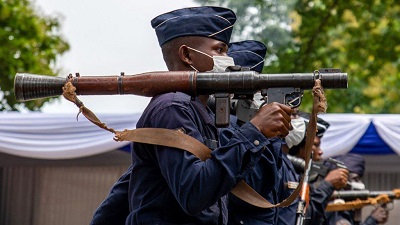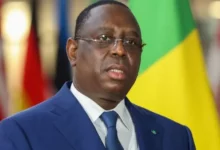
This week the European Union (EU) imposed sanctions on the Wagner Group, a Russian mercenary organisation accused of committing human rights abuses in the Central African Republic (CAR) and elsewhere.
The EU has said that it will no longer train CAR government soldiers because of their links to Wagner.
In Africa, its fighters are also involved in Libya, Sudan and Mozambique and look likely to play a role in Mali.
The mercenaries are there to support President Faustin-Archange Touadéra in the fight against rebels, who still controls many parts of the country despite recent government advances.
The country has been embroiled in civil unrest since President François Bozizé was overthrown in 2013. President Touadéra, in power since a 2016 election, had struggled to defeat rebel forces despite the presence of French troops and a United Nations (UN) force.
The CAR government believes the Russian mercenaries have had more success.
Wagner is believed to have started working in the CAR in 2017, after the UN Security Council approved a Russian training mission there and lifted the arms embargo imposed in 2013.
In October 2017, President Touadéra travelled to Russia to sign a number of security agreements with the Russian government.
These included a request for military support, in exchange for access to the CAR’s significant deposits of diamonds, gold and uranium.
The UN had only agreed to the deployment of 175 Russian trainers for the local military.
Despite official Russian denials, there are accusations, including from the EU, that there are links between Wagner and the Kremlin.
Analysts say that these ties enabled armed Wagner operatives to start working in the CAR after the deal with Russia was signed.
Since then, the group’s presence in the mineral-rich country has mushroomed.
The Russian government says that it has sent unarmed military instructors to CAR, and that no more than 550 of them have been in the country at any one time.
UN experts, however, believe there could be more than 2,000 instructors deployed by Russia to the CAR, including recruits from Syria and Libya, where Wagner has been active.
This is of particular concern to the UN and France who have both accused the group of inflaming the conflict by carrying out human rights abuses and extrajudicial killings of suspected rebels. -BBC






